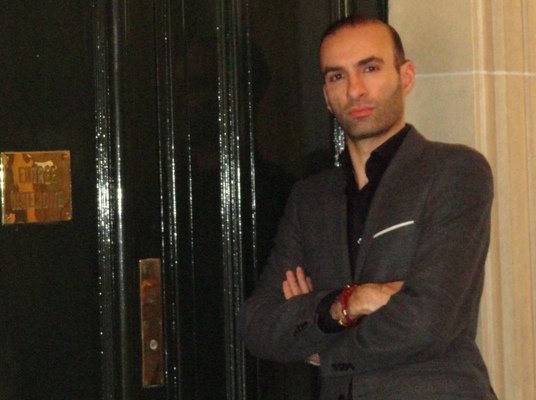Qatar won’t compromise on its national interest: Adib-Moghaddam

TEHRAN – According to a Professor at the London Middle East Institute, the mistrust between Qatar and the UAE-Saudi is so pronounced that it is unlikely to be overcome in the short term.
Arshin Adib-Moghaddam, who is also the author of Pycho-nationalism: Global thought and Iranian imaginations believes that the crisis is resolvable, as of yet, because “the demands are unreasonable and the treatment of Qatar by Saudi Arabia and the UAE has been disrespectful and self-defeating.”
Adib-Moghaddam, too, a professor in Global Thought and Comparative Philosophies and Chair of the Centre for Iranian Studies at the London Middle East Institute, adds that “I don't see Qatar committing to anything. The country's diplomats will not compromise on the national interest of the country.”
Here is the full text of the interview:
Q: A summit is to be held in May in the United States where the Emir of Qatar, crown prince of Saudi Arabia and crown prince of the UAE are going to address the crisis in Qatar. Will the talks bring forth real solutions to the disputes between these Persian Gulf Arab states and Qatar?
A: The Trump administration has tried to solve the problem for some time now without success. I think the mistrust between Qatar on the one side and the UAE/Saudi on the other is so pronounced that it is unlikely to be overcome in the short term. Diplomacy can only work within a context that allows for it. This is not the case here yet.
Q: US Secretary of State Rex Tillerson has said that the crisis in the Persian Gulf region is not only limited to the Arab countries, but it will eventually affect the United States. What kind of losses does the United States have to endure?
A: The Trump administration has tried to forge a new block with so called "friendly Arab states", which always also means that they are mute about the plight of the Palestinian people, Israel and the United States. This is meant to roll back real and alleged Iranian influence in Lebanon, Syria and Iraq. Again, I don't see the Trump administration in the position to move decisively and successfully here as well.
Q: Qatari Foreign Minister Mohammed bin Abdul Rahman Al Thani has declared that his country is ready for the summit. But he argued that Doha would not be willing to accept conditions set for his country and demanded equal footing of all states involved in the talks. At the end of the day, is the Qatar crisis resolvable?
A: I don't think the crisis is resolvable at this stage because the demands are unreasonable and the treatment of Qatar by Saudi Arabia and the UAE has been disrespectful and self-defeating. Respect is an important factor in human interactions and it is the same in international diplomacy. For that language, a country requires a deep political culture and good knowledge of international relations. More philosophers than tankers if you like.
A cast of neo-Adibians who would safeguard and translate high culture into the realm of international relations. Qatar has tried to build that capacity in the last two decades with some impressive results in terms of academia, but there is no such infrastructure in Saudi Arabia and the UAE where you find more decadent glitz and glamour, than scholarship and knowledge. Iran lacks this kind of diplomatic capability as well, in particular in the embassies which are not staffed by the right people.
Q: Of the 13 terms and conditions promulgated by Saudi Arabia and its allies for Qatar, which ones may Qatar have to accept?
A: I don't see Qatar committing to anything. The country's diplomats will not compromise on the national interest of the country.
